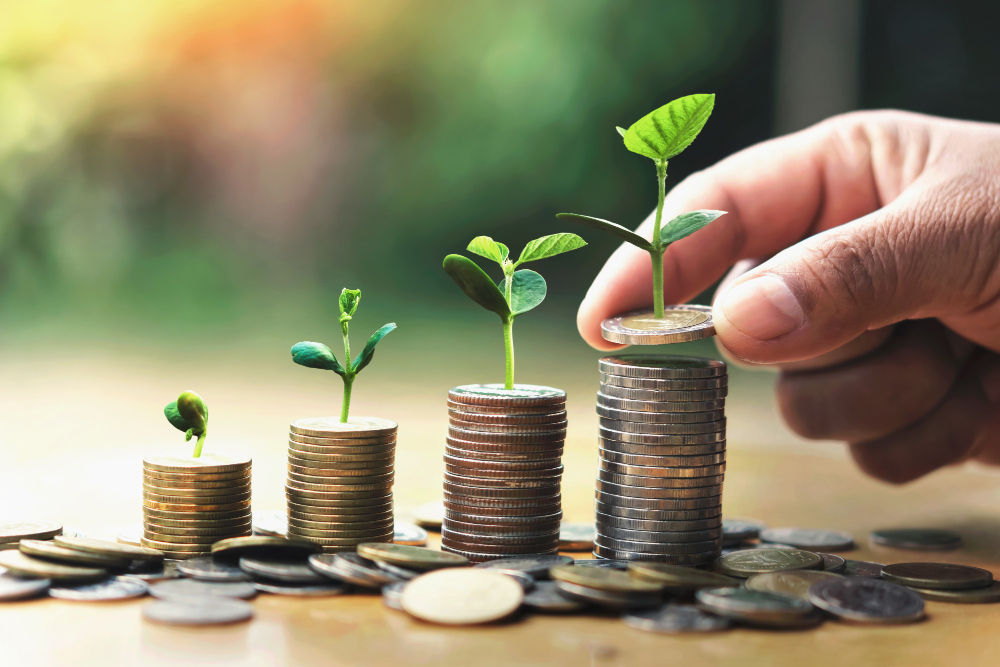Vacant Land: The Safer Bet in Real Estate Investing

When you think of real estate investing, you most likely envision various types of residential or commercial structures. And it’s true that most real estate investing involves buildings of some kind, from single-family homes and apartment buildings to retail, office space, and warehouses.
However, with all of its potential and possibilities, vacant land can be an extremely appealing investment. Let’s look at some options for investing in vacant land, as well as some pros, cons, and factors to consider.
What is a vacant lot?
A lot or plot is a tract or parcel of land owned or intended to be owned by someone in real estate. In some countries, a plot is considered real property, while in others, it is considered immovable property.
Land Investment Types
Investments in Residential and Commercial Real Estate Land
Because virtually an infinite number of land development opportunities can be structured to meet an investor’s capital and time constraints, residential and commercial land development provides a viable entry point into investment.
Real estate investment trusts (REIT) ETFs are an excellent choice for most small investors because they do not require direct management, are broadly diversified by property type, are geographically diversified, can be purchased or sold in real time, and are very inexpensive. Others, such as the Vanguard REIT ETF, provide diversified exposure to industrial, office, retail, healthcare, public storage, and residential property developments.
Unfortunately, these types of investments limit the landowner’s ability to enjoy the land. As a result, for people who want to truly experience the feeling of land ownership, residential and commercial land developments are not viable options.
Land Real Estate Investments for row crops and livestock operations
Land purchased for row crop farming or running a livestock operation allows you to enjoy the land in both the sense of home ownership and income generation. However, there is a slew of issues for small investors who buy land to run these types of businesses. To begin, the scale required to operate a row crop or livestock operation must be very large in order to be financially viable. This, in turn, necessitates a significant upfront capital outlay that most people cannot afford. Furthermore, the ongoing fixed costs of operating these types of farming operations are extremely high.
Opportunities for Small Farm Investment Properties
Timber farms, mineral development lands, vegetable gardens, orchards, vineyards, and recreational land may be the best options for small investors to truly enjoy the more traditional sense of land ownership. These agricultural ventures are much more appealing to small investors because the scale of the land purchase can be tailored to meet the investor’s capital constraints; operations have the potential to generate an ongoing income stream, and investors can enjoy being on the land while it is being used.
Why Land is Best for Real Estate Investors?
A piece of land has always been a valuable commodity to consider when investing your money in the real estate market.
Some investors purchase a vacant lot with the intention of developing it immediately into rental properties, commercial property, residential real estate, or sending it to a property manager for other ventures. Others, on the other hand, purchase vacant lots with the intention of letting the value grow over time. Investing in land can also be accomplished by purchasing nearby properties close to your own home in order to increase its overall value.
There are some key strategies to help you make the best land purchase decision, just as there are for any other good investment. While no land investment can be 100% guaranteed, land remains a safe investment as long as certain key factors are considered, such as market value, mortgage interest, property taxes, future development in adjacent properties, and zoning laws.
Land, whether raw or undeveloped, has multiple uses.
When you buy a piece of land, the possibilities are limitless.
Perhaps the main reason for purchasing real estate is that you’ve always wanted to build your own home. You could also keep it until the value rises and then sell it to a developer. Some people even buy a piece of land to raise cattle on, knowing that they can sell it later if they want. You could also build a rental property on a few acres to make some extra money.
The land has so much potential that it is a very adaptable investment.

It’s an excellent retirement strategy.
If you’re still working, considering what you’ll do when you retire can be tedious at best.
In real life, you’ll need something to keep you occupied. The possibility of earning extra money while doing so is also appealing! Rental properties provide a great source of residual income while also keeping you up to date on the ins and outs of land investments and commercial real estate investing.
If you own land, you can consider selling it at a reasonable price later. Alternatively, similar to real estate, it can be rented for a set monthly fee. So, owning a piece of land is not only a good investment, but it can also significantly help your personal finances grow.
Land investment property steadily increases in value, particularly in prime places with better transportation access.
The great thing about land is that it will always have a use. So, if you do some research into the area your land and surrounding properties are located in, as well as the types of uses it would suit, you could generate some future income and increase your property’s value.
Assume you discover a plot of land in a developing neighborhood. The area is desirable, and there are some residential or commercial property developments nearby. Purchasing land near such an area would be fantastic, especially if your primary goal is to see the land appreciate over time.
A good location is also determined by your intended use. Before you buy, it’s always a good idea to look into the types of businesses that operate in the area, as well as the typical asking prices. Purchasing the right piece of land at the right time is also important. Purchasing raw land with abundant access to natural resources such as greenery, air, and sunlight should be a top priority.
It Can Be An Excellent Source Of Passive Income.
Passive income is money earned while your other revenue streams are running in the background. A job, for example, would be considered active income because you are paid to show up every day. Passive income, on the other hand, necessitates either a one-time or minimal effort. Consider how bloggers and YouTubers created their content years ago and continue to earn money from it even while they sleep!
Land is another excellent source of passive income. There are numerous approaches you can take. Traditionally, you could buy land and let it appreciate without doing anything to earn money.
Alternatively, you could use vacant land for something else that will make you money. Whether you rent out your raw land to other businesses or build a tourist attraction or apartment building on it, the opportunities to leverage land investments are numerous.
If you later decide to sell the land and let its capital appreciation increase first, you will have passive income.
Real Estate Investment on Residential Lots
Investing in real estate entails numerous risks. These include incurring additional debts as a result of a bank loan, paying taxes, incurring costly repairs, dealing with bad tenants, and receiving lawsuit notices. As a result, you must be able to manage these risks effectively by exercising due diligence.
However, once you’ve read through this article thoroughly, you’ll realize that investing in land is a wise choice.
The sooner you invest in land, the sooner you’ll be able to profit from it. Whether you intend to sell it to a developer or keep it, any land you buy will gradually increase in value over time.




